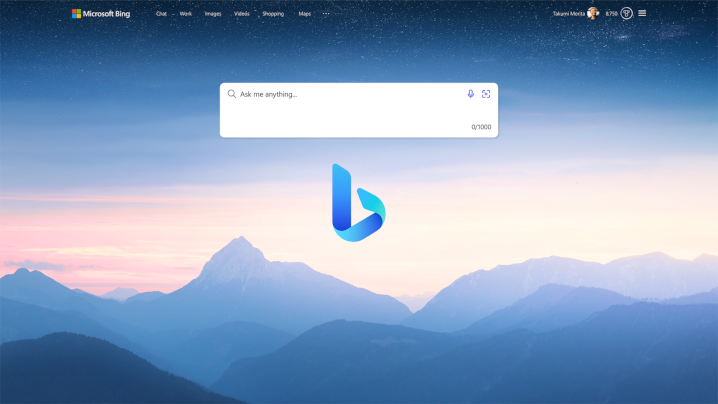 AI
AI
 AI
AI
 AI
AI
Microsoft Corp. has disclosed that its Bing search engine is now used by 100 million consumers every day.
Yusuf Mehdi, the corporate vice president of Microsoft’s modern life, search and devices group, announced the milestone in a Wednesday blog post. The update comes about a month after the company released a new version of Bing that features an artificial intelligence chatbot. The chatbot, which Microsoft developed in collaboration with OpenAI LLC, can generate elaborate natural language responses to user questions.
Bing’s AI chatbot is currently available through a preview program. The preview program has several million participants, Mehdi detailed. One third of those participants are new to Bing, which is one of the factors that helped Bing pass 100 million daily active users.
“Of the millions of active users of the new Bing preview, it’s great to see that roughly one-third are new to Bing,” Mehdi wrote. “We see this appeal of the new Bing as a validation of our view that search is due for a reinvention and of the unique value proposition of combining Search + Answers + Chat + Creation in one experience.”
Another third of the users who are helping to test the new Bing chatbot interact with it every day. On average, Mehdi detailed, the chatbot is accessed three times per Bing session. Consumers have used the AI about 45 million times since the preview program began early last month.
Bing’s new chatbot features are also drawing more users to the mobile version of the search engine. The app now boasts six times more active daily users than before the chatbot launched, Mehdi stated in the blog post.
In parallel with the recent growth of Bing’s installed base, user engagement has increased. Consumers are interacting with Bing more times per day, Mehdi detailed, in a trend that Microsoft attributes to not only the new chatbot but also its efforts to make standard search results more relevant.
Last month, when Microsoft debuted the chatbot, the company also detailed several other AI projects. One of those projects saw the company apply OpenAI’s machine learning software to the algorithms that Bing uses to generate standard search results. The initiative produced what Microsoft has described as the “largest jump in relevance” since Bing’s launch.
As part of its effort to roll out more machine learning features, Microsoft is also testing a new AI-equipped version of its Edge browser. Bing is the browser’s default search engine. Mehdi stated that the growing popularity of Edge is another contributor to the increase in Bing usage.
“Microsoft Edge continues to grow in usage as it has done for the last seven quarters based on the quality of our browser,” Mehdi wrote. “We expect new capabilities, like having Bing search and create in the Edge sidebar, will bolster further growth. The second factor driving trial and usage is that our core web search ranking has taken several significant jumps in relevancy.”
Support our mission to keep content open and free by engaging with theCUBE community. Join theCUBE’s Alumni Trust Network, where technology leaders connect, share intelligence and create opportunities.
Founded by tech visionaries John Furrier and Dave Vellante, SiliconANGLE Media has built a dynamic ecosystem of industry-leading digital media brands that reach 15+ million elite tech professionals. Our new proprietary theCUBE AI Video Cloud is breaking ground in audience interaction, leveraging theCUBEai.com neural network to help technology companies make data-driven decisions and stay at the forefront of industry conversations.